In-Depth LPN Role Guide: Requirements, Duties, and Benefits

There are many different paths to starting a nursing career, with some allowing you to enter the workforce in a shorter time and others taking longer but resulting in more benefits down the line.
Taking the steps to become a licensed practical nurse is recommended if you want to start working as soon as possible in a practice-centered role.
In general, completing a PN Diploma Program takes only one year, making it worth your consideration, especially if time is essential or if you wish to “test the waters” of a long-term nursing career.
In this article, we will examine the licensed practical nurse job description and role requirements, including the skills you must possess, its educational requirements, and day-to-day duties within the nursing work environment.
Let’s explore this very popular and appealing starting path for your nursing career.
What Is an LPN?
A licensed practical nurse (LPN) is a healthcare professional that provides primary care and basic support, for sick, injured, convalescent, or disabled patients. Becoming an LPN is the most accessible path to entering the nursing field, both from financial and time considerations.
However, licensed practical nurses have limited autonomy in their work environments, requiring constant supervision of other types of nursing personnel, such as registered nurses or physicians.
LPN/LVN: Is There a Difference?
You may have seen the terms LPN and LVN (licensed vocational nurse) used interchangeably. If you are wondering if there is a difference between the two, there is a simple answer: they refer to similar roles, but the LVN is a term used in Texas and California. While responsibilities may vary across states (as they do from one workplace to another), LPNs and LVNs are essentially qualified for the same duties and job description.
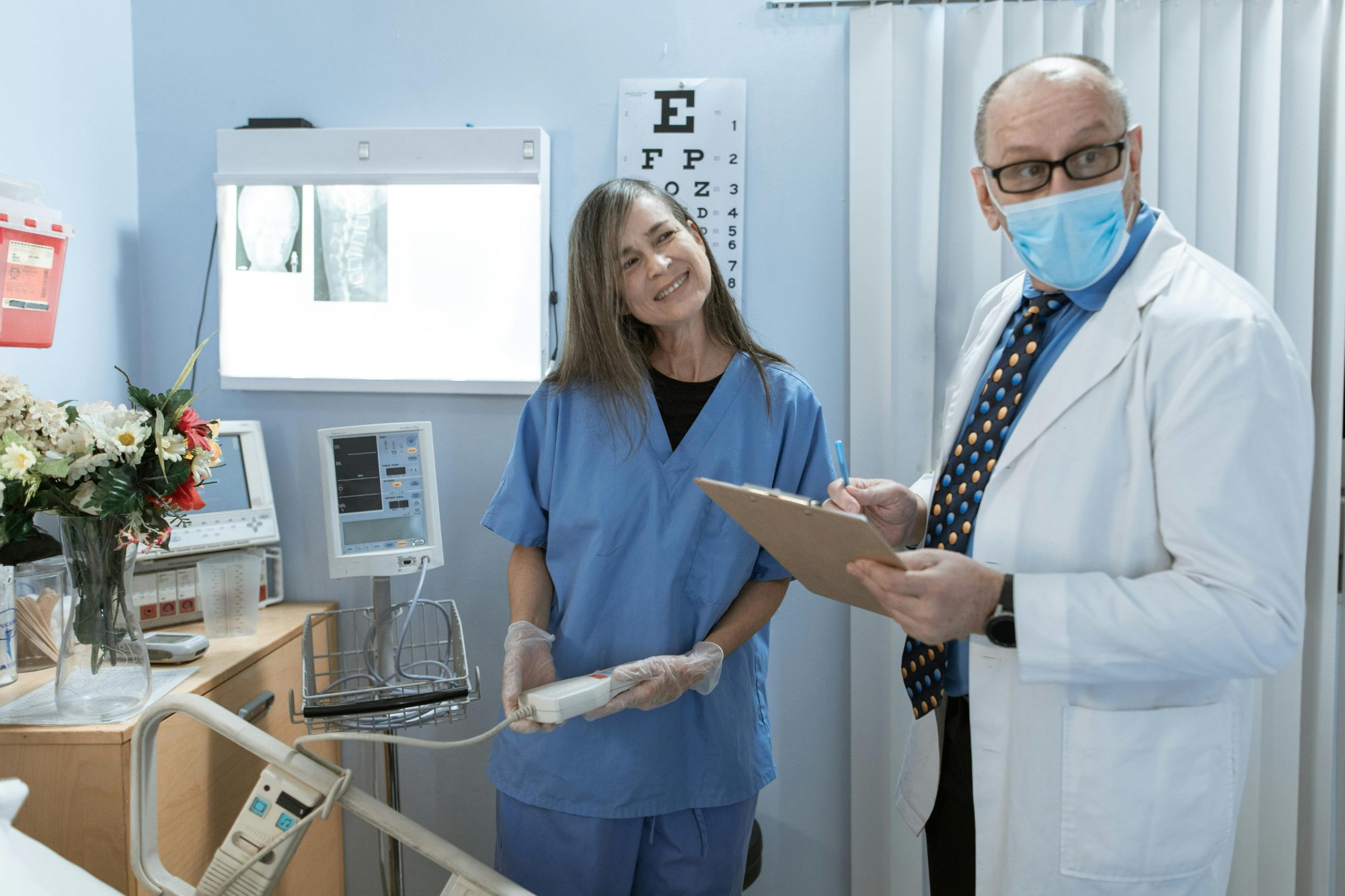
LPN Job Description
Given the required supervision from better-certified nurses, the LPN job requires constant synchronization with other staff in your future workplace.
The job description of a licensed practical nurse includes basic care duties such as monitoring their patient’s health, administering primary care, and ensuring the basic comfort of patients. LPNs must also communicate clearly with patients, provide explanations for the treatments they receive, and listen to their concerns. Consequently, if patients express any problems or the LPN notices any changes in their health status, they must report it to the RN or the physician in charge.
That’s why keeping accurate and careful records of a patient’s health is another significant part of the LPN’s job description, as well as maintaining a clear and constant line of communication between nursing staff, patients, and other caretakers.
All in all, if you prefer the practical aspect of nursing, can offer constant care and comfort to a broad range of patients with different backgrounds, and you can also maintain good relations and communicate clearly with your coworkers and supervisors, the licensed practical nurse role is perfect for you.
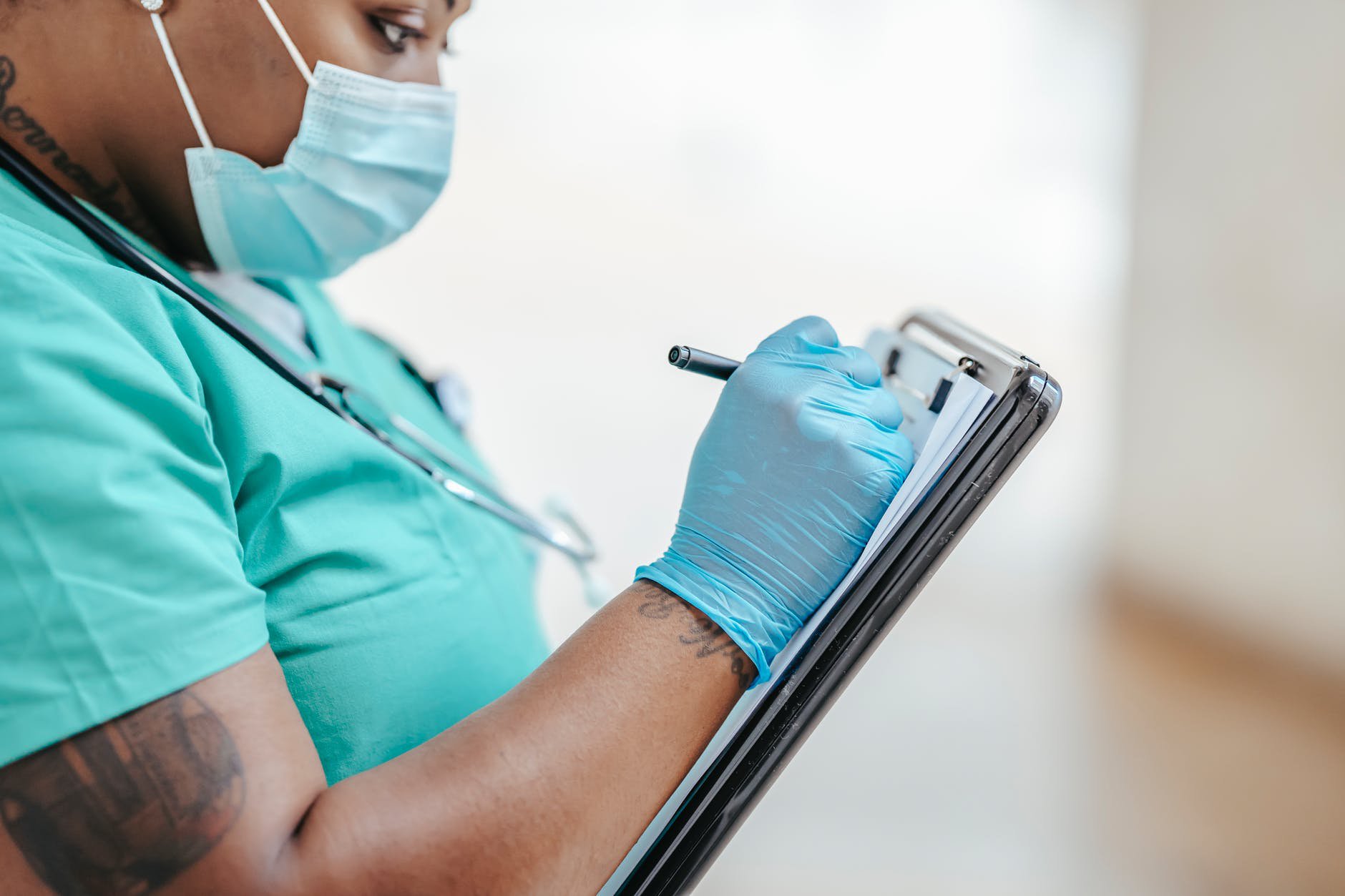
LPN Duties and Responsibilities: What Will You Do on a Daily Basis?
As a licensed practical nurse, you will need to perform a certain set of tasks in most work environments and no matter the role you fulfill. Here is what you can expect to do in your day-to-day activities:
- Taking vital signs – Carefully recording blood pressure measurements, body temperature, pulse rate, respiration rate is an essential part of the LPN’s role.
- Recording the patient’s medical history – The accurate recording of patients’ situations is a fundamental part of the job, and informs subsequent decisions in caretaking.
- Talking to patients – Getting information about patients’ condition, and their medical history is crucial in a medical environment. You will assess how they’re feeling at any given moment or details about their medications, allergies, family health history, and so on.
- Offering basic levels of care – This refers to the changing of bandages, inserting catheters, cleaning and dressing wounds.
- Assisting patients with daily activities – This may include helping patients in bathing, cleaning, getting dressed, shaving, eating, and or moving around the facility. You will also prepare and position them for interventions performed by other nursing staff.
- Closely observing the patients – LPNs need to keep an eye on patients at all times and see how their state progresses after treatment or if there are side effects to the medication they have taken or the intervention they have undergone.
- Collecting samples for routine laboratory testing – This is another important part of the LPN job description. You may have to collect patient samples for lab testing, such as urine, saliva, and other fluids. If you have the proper certification, you may also draw blood.
- Providing emotional support to the patient and the family – Being in a hospital environment can be quite taxing. It is often the task of LPNs to uplift patients’ morale in challenging moments.
- Reinforcing teachings done by RNs – You will help patients understand what they should do post-treatment or how the family should care for a relative who’s sick or injured.
How Can LPN Duties Differ by State?
The duties and responsibilities of the LPN nurse can also vary slightly depending on the state where they’re practicing. Here are some examples of how the location of your practice can influence your job:
- Administering medicine and IV therapy – LPNs can give medication and start intravenous drips in some states, as long as they have proper training and hold the appropriate certification. However, some states don’t allow LPNs to perform these tasks at all, reserving them for better-trained nurses.
- Level of supervision – Although all LPNs must work under an RN or physician, no matter the state, the extent of the supervision varies, depending on state regulations. LPNs can only perform some forms of care with clear instructions from an RN in some places.
- Supervision of other staff – In some states, as an experienced Licensed Practical Nurse, you may be allowed to supervise and direct other LPNs and unlicensed medical staff, such as Certified Nursing Assistants.
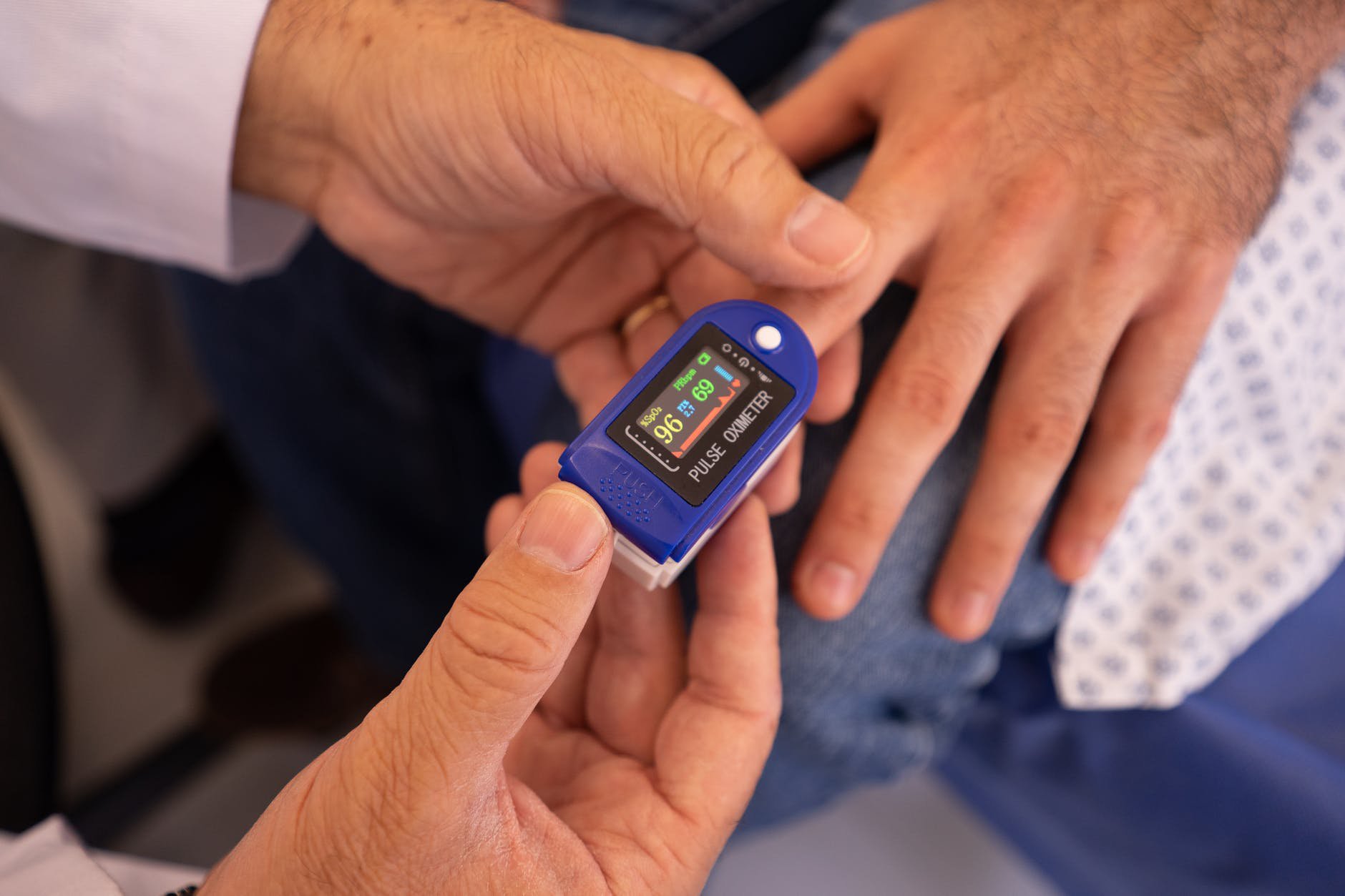
Where Do LPNs Work?
The LPN duties and responsibilities included in their job description will also differ depending on where you work. Here are the most frequently encountered work settings for licensed practical nurses, along with job description differences.
Hospital and Private Clinic LPNs
Out of a total of 655,000 LPNs reported in 2022 by the Bureau of Labor Statistics, 15% or 98,250, work either in state, local, or private hospitals, with an additional 12% or 78,600 being employed in physicians’ offices.
The hospital LPN job description is the broadest, as it involves multiple types of treatments and medical situations. Your duties will include keeping patients under close observation, maintaining clear patient records, providing care and attending to any of their needs. Depending on the certifications you pursue, you may also collect samples, administer medicine and perform IV therapy, but all under supervision.
Find out more about the advantages of working in a hospital and whether you should opt for it as a licensed practical nurse.
Nursing Home LPNs
Jobs in nursing and residential care facilities make up 35% (229,250) of all licensed practical nurse occupancy, these being the largest employers for LPNs, according to the figures from the BLS.
As an LPN working in a nursing home, you will add to your list of responsibilities tasks such as admitting new residents or assisting physicians during their rounds of the residents’ rooms. Explaining treatment protocols and procedures will also fall under your job description.
Home Health LPNs
Home health is another important employment avenue for licensed practical nurses, 13% of which provide home healthcare services, according to the BLS. The government is also responsible for hiring around 6% of LPNs.
LPNs who work in home health are expected to provide lots of hands-on care, like all LPNs, regardless of employer. In addition, they may have to set up exercise programs for recovering patients and make sure that their patients are taking appropriate medication dosage. Home Health LPNs have an additional layer of responsibility because they must be on-call for patients who experience healthcare emergencies.
Read more about home health nursing and its viability as a career choice for your professional journey.
Travel Nursing LPNs
You can also find other employment options, such as becoming a travel nurse, and providing at-home care to patients who do not have the mobility to access other facilities.
Your responsibilities will resemble those of permanent staff, but will also involve increased mobility on your part. And, while your pay will be better compared to other LPNs, the highest paying travel nursing jobs are generally only accessible to registered nurses or nurse practitioners.
Find out more about the latest travel nurse salaries by state across the US.
Regardless of your employer, most LPNs work full time, so you may be expected to work nights, weekends, and holidays. Your shifts may often exceed 8 hours. That’s why stamina and endurance are some of the top qualities for an LPN.

LPN Salary: How Much Do Licensed Practical Nurses Earn?
The earning potential of licensed practical nurses is reasonable, especially considering the shorter time and resources you need to invest in earning a PN diploma.
According to the BLS, in 2022, the average salary for LPNs was $54,620 per year, with the lowest 10% of employed LPNs earning less than $40,490, while the highest 10% earners in the field getting over $72,650. On average, licensed practical nurses made $6,060 more than health technologists and technicians, $8,310 more than all occupants in their work environments, but $26,600 less than registered nurses.
Your chosen workplace will also affect your projected annual wage considerably:
- Nursing and residential care facilities – $58,140/year
- Government – $57,200/year
- Home healthcare services – $54,080/year
- State, local, and private hospitals – $49,760/year
- Physicians’ offices – $48,300/year
The state you work in also influences your projected yearly pay. The best paying states for licensed practical nurses are Washington ($69,950), California ($69,930), and Massachusetts ($68,170), and the three lowest are West Virginia ($45,530), South Dakota ($46,000), and Mississippi ($45,020).
Read more about each LPN salary by state, to see how your compensation may vary.
LPN Job Outlook and Opportunities
The current LPN job outlook is better than the overall change in healthcare employment overall, with the US Bureau of Labor Statistics projecting a 5% growth in LPN employment through 2032, compared to the 3% change overall. Additionally, there are approximately 54,500 new job openings for LPNs each year.
The reason for the increase in the number of licensed practical nurses is strongly tied to the aging of the baby-boomer population. As the “silver tsunami” comes, the need for healthcare services will also intensify significantly. LPNs will become critical occupants in residential care facilities and home healthcare environments to care for older patients.
Additionally, the increased prevalence of chronic conditions, such as diabetes and obesity, also leads to a heightened need for LPNs to assist and care for patients suffering from these conditions.
While LPNs, in general, have a great job forecast, if you are also willing to work in rural and medically underserved areas, you will enjoy the most favorable job prospects. Also, LPNs who get certified in a specialty area – like gerontology or IV therapy – will be much higher on employers’ lists.
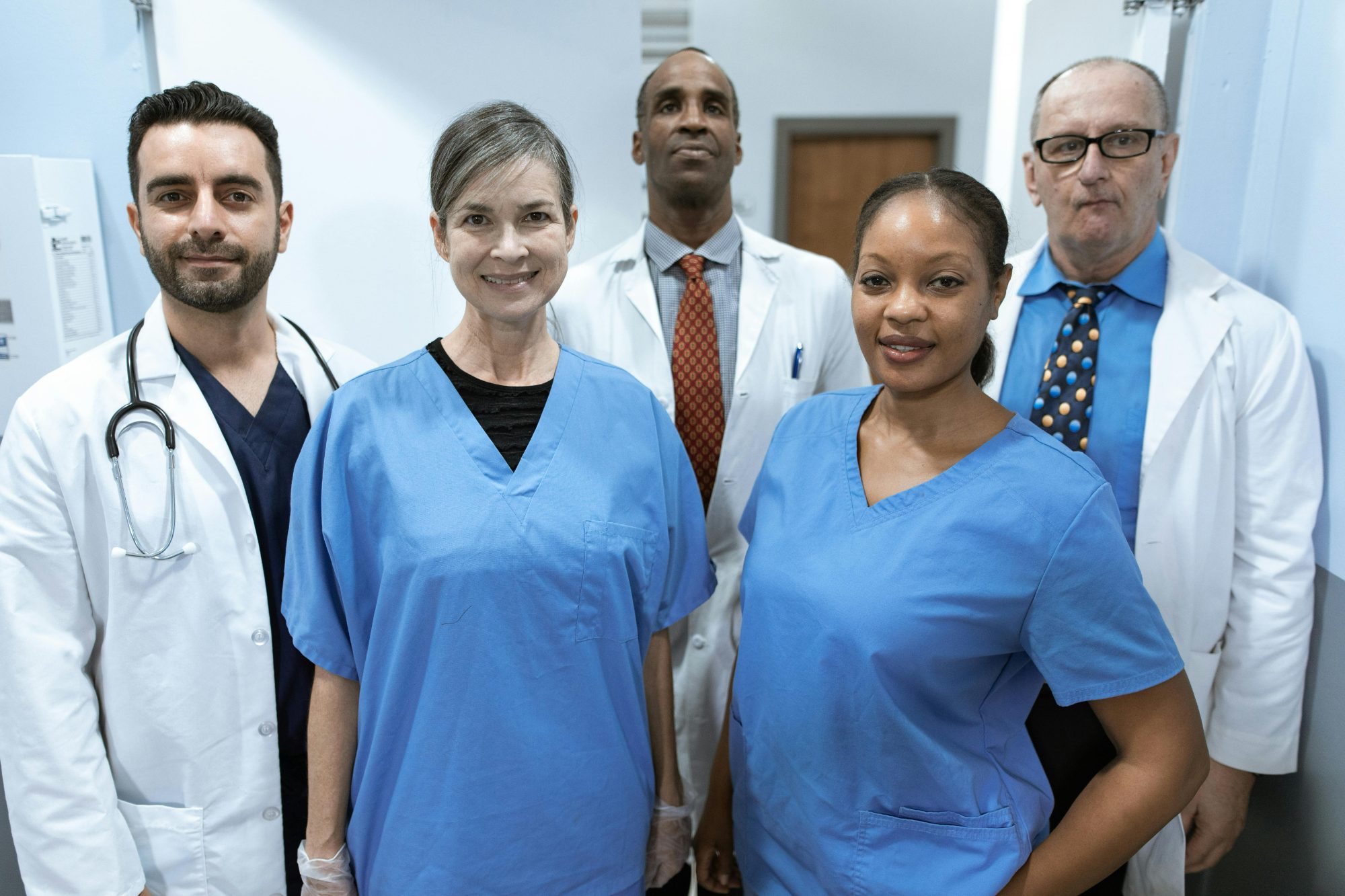
What Are the Differences Between LPN and RN Roles?
You can find many differences between RN and LPN roles, especially when it comes to job descriptions, daily duties, and workplace autonomy, but also in compensation, and career outlooks.
From an educational standpoint, RNs either need to get an ADN (lasting at least 2 years), or earn a BSN degree (which takes 3 to 4 years). So, compared to LPNs, registered nurses spend more time in school and preparation. As opposed to the NCLEX-PN needed for practical nursing licensure, registered nurses take the NCLEX-RN for accreditation.
Since the shortest route to practical nursing is through a PN diploma, and the shortest educational option for RNs is an ADN, consult the LPN vs. ADN comparison to decide which option you should opt for.
While LPNs offer a more basic level of care, the duties of the registered nurse are more complex. RNs are generally in charge of administering medication and treatments, drawing blood, inserting IV drips. These tasks are mostly off-limits for LPNs. RNs can also perform some diagnostic tests, operate and monitor medical equipment. And most importantly, registered nurses directly oversee and supervise LPNs.
Registered nurses also earn higher salaries. The average RN annual salary for 2022, as reported by the BLS, was $81,220, which amounts to $26,600 more per year. Location differences also affect the pay, and you should consult our study on the nurse salary by state, to better compare the wages of LPNs and RNs in your area of residence.
Concerning the job outlook, there were 3,172,500 registered nurses across the US, with an year-to-year change of 34,900, amounting to a 5% annual increase through 2032. Additionally, RNs have more options in becoming various nurse types, while LPNs are limited to earning additional certifications or pursuing RN accreditation through a 16-month LPN-to-ASN path, or by enrolling in a full-time BSN Program.
The differences between these two careers don’t stop here. Find out more about the LPN vs. RN comparison in our complete guide on the subject.
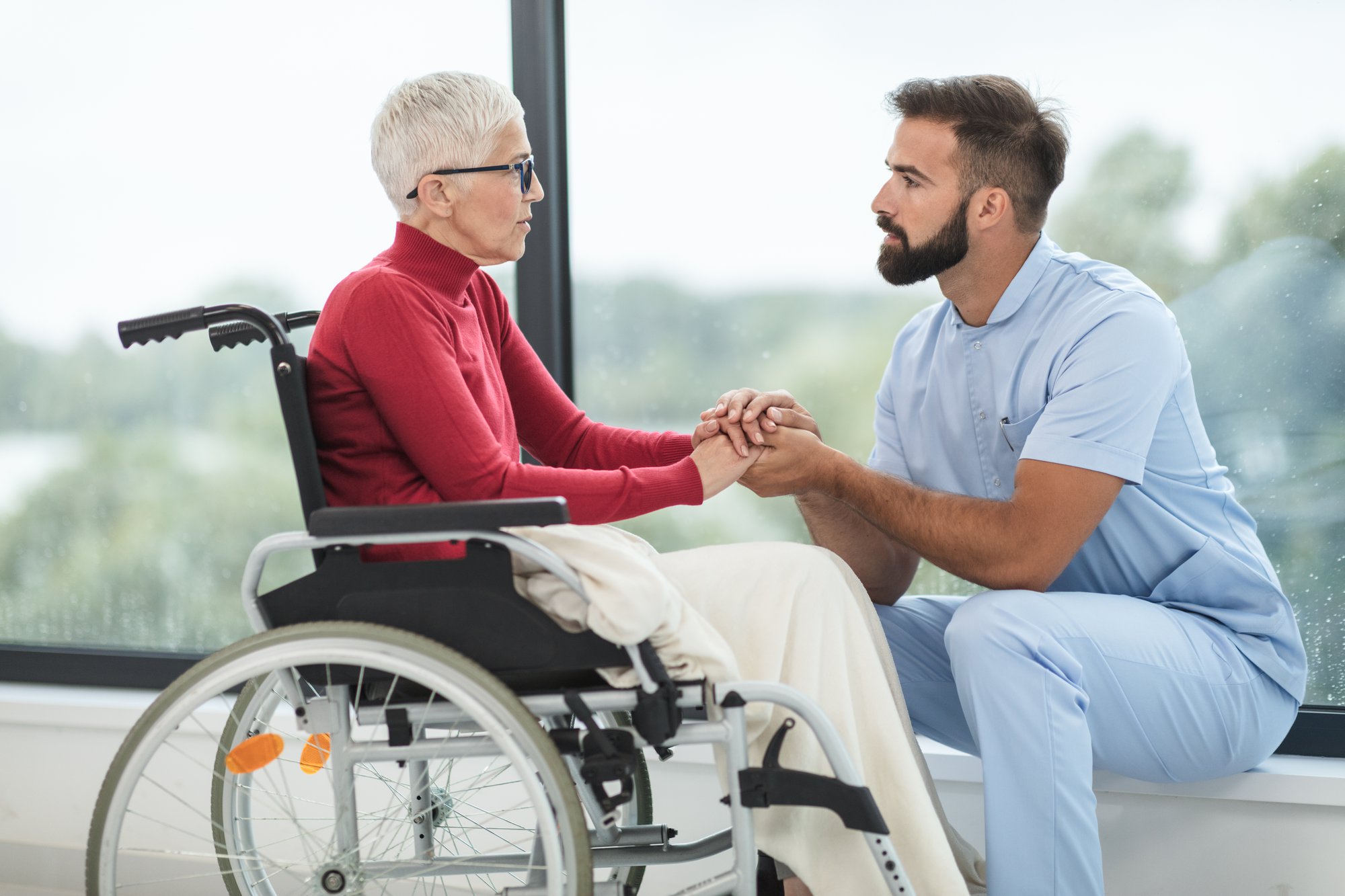
Why Choose the LPN Career?
Becoming and fulfilling the LPN job description can certainly seem like a lot. A licensed practical nurse must tackle many duties and responsibilities on a daily basis, and, to be frank, the job comes with its share of stress. However, it still can prove to be a gratifying profession and a good entry point into nursing.
Here are the key reasons why you may choose to become an LPN:
- You gain valuable experience – As an LPN, you can accumulate valuable on-ground nursing experience while actively helping patients and bettering your work environment and healthcare in general.
- Fast-track to a nursing career – Becoming a licensed practical nurse is the fastest way into a nursing career, also requiring a comparatively lower investment on your part.
- Good return on your investment – Many LPN jobs pay well, especially if you attain additional certifications and employment prospects are excellent, the career choice being recession-proof.
- Test the waters – Opting to get your PN diploma and start practicing within a year of study is a good way of evaluating your affinity for a long-term nursing career.
- Opportunity to discover your professional path – The extended hands-on experience under the supervision of older or better-certified staff can also let you evaluate your career options. The broad scope of practice will allow you to pick your advancement options.
- You will have options to further your education – LPNs can also easily move on to become registered nurses through an LPN-to-ASN path, which takes as few as 16 months to complete.
How to Become a Licenced Practical Nurse?
Now that you are familiar with the LPN job description, duties, and benefits, you may be wondering how to become an LPN about the educational track you have to take.
Aspiring licensed practical nurses first have to enroll in a Practical Nursing (PN) diploma program and complete it successfully. Attending and graduating this program generally takes around one year. Practical nursing programs are offered at public and private colleges, technical and vocational schools, as well as hospitals and medical facilities. As for degree requirements, you only need to have a high school diploma, GED certificate or other educational equivalents.
During studies, licensed practical nurses in becoming have to tackle core subjects such as nursing, biology, and pharmacology. Usually, some general education courses also apply, but you can equivalate or complete them before. Since the LPN role leans on hands-on and practical experience, candidates must also complete supervised clinical hours.
After successfully completing the program, learners are eligible to sit for the National Council Licensure Examination (NCLEX-PN). Only after passing this exam do students get licensed as LPNs and can start working in the field.
At Nightingale College, we offer aspiring LPNs a PN Diploma Program specifically designed to help you study flexibly and do your best in the NCLEX-PN exam. By completing your theory classes online and attending on-ground supervised field experience, you can complete the required program with maximum comfort and flexibility.
Start your LPN career. Learn more about our PN Diploma Program!
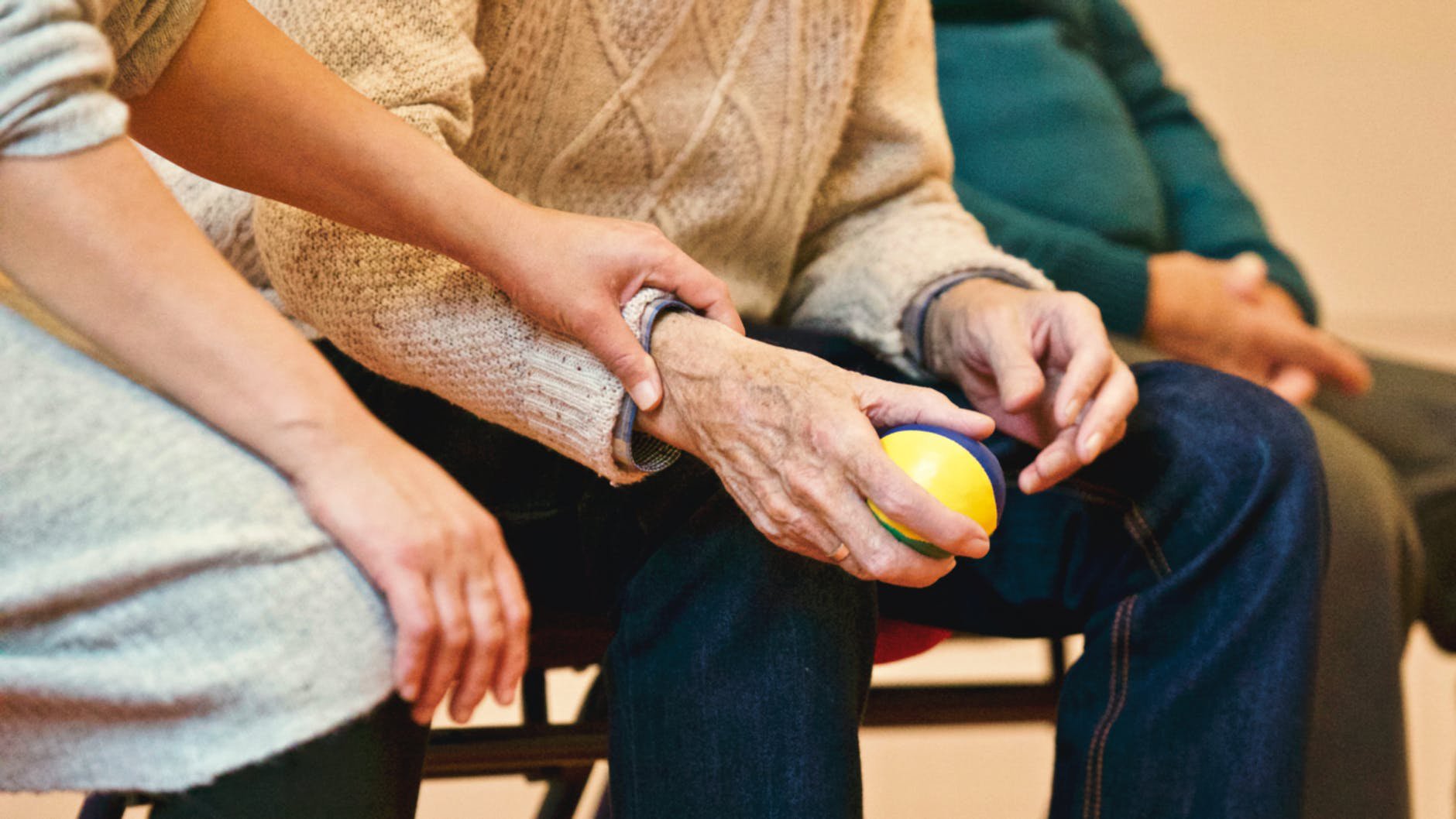
Do LPNs Need to Get Certified?
While licensure via passing the NCLEX-PN is a must for becoming a licensed practical nurse, certification for other work duties is an entirely voluntary process. However, getting certified in additional areas shows interest and initiative and proves your commitment to becoming the best specialist you can be.
Some of the most common certifications for LPNs include:
- IV Therapy Certification – permits you to administer medication intravenously.
- Long Term Care Certification – ensures you can provide care in long-term care facilities.
- Initial Gerontology Certification – proves you have the knowledge and skills to care for the older population.
- Wound Care Certification – also often recommended to LPNs, especially those working in hospital settings. It allows them to clean and dress wounds.
What Skills Should an LPN Have?
In addition to your education and training, you need a mix of soft and hard skills for the LPN job description. These skills will help you be better and more successful in future work settings and will ensure that all the patients you tend to enjoy the highest level of care. Additionally, they enhance your job resume and increase your employability. The essential LPN skills and qualities include:
- Medical knowledge – You need to stand on a solid educational foundation to be good at this job.
- Communication skills – Good therapeutic communication is at the heart of quality patient care. In a healthcare environment, it is vital that no information gets lost, misinterpreted, or misunderstood.
- Patience – The patients you will treat may require extended and dedicated attention and care, making your job all the more complicated and stressful. That’s why you must remain patient and try to find the right approach for each patient.
- Endurance – LPNs will spend most of their workday on their feet, may need to move or lift patients with mobility issues, and have to constantly go from one patient to another, all of which may take their toll on you. Emotional and physical resilience are some of the cornerstone qualities of a licensed practical nurse, as well as knowing how to combat nursing burnout.
- Attention to detail – As you will care for multiple patients at the same time, being detail-oriented is imperative. Each patient comes with their own demands, dietary needs, medication schedules. Carefully recording and adhering to them is of utmost importance.
Many of the key qualities and skills for LPNs also apply for all nursing positions. That is why you should know how to be a better nurse, and what areas of improvement can elevate patient care.
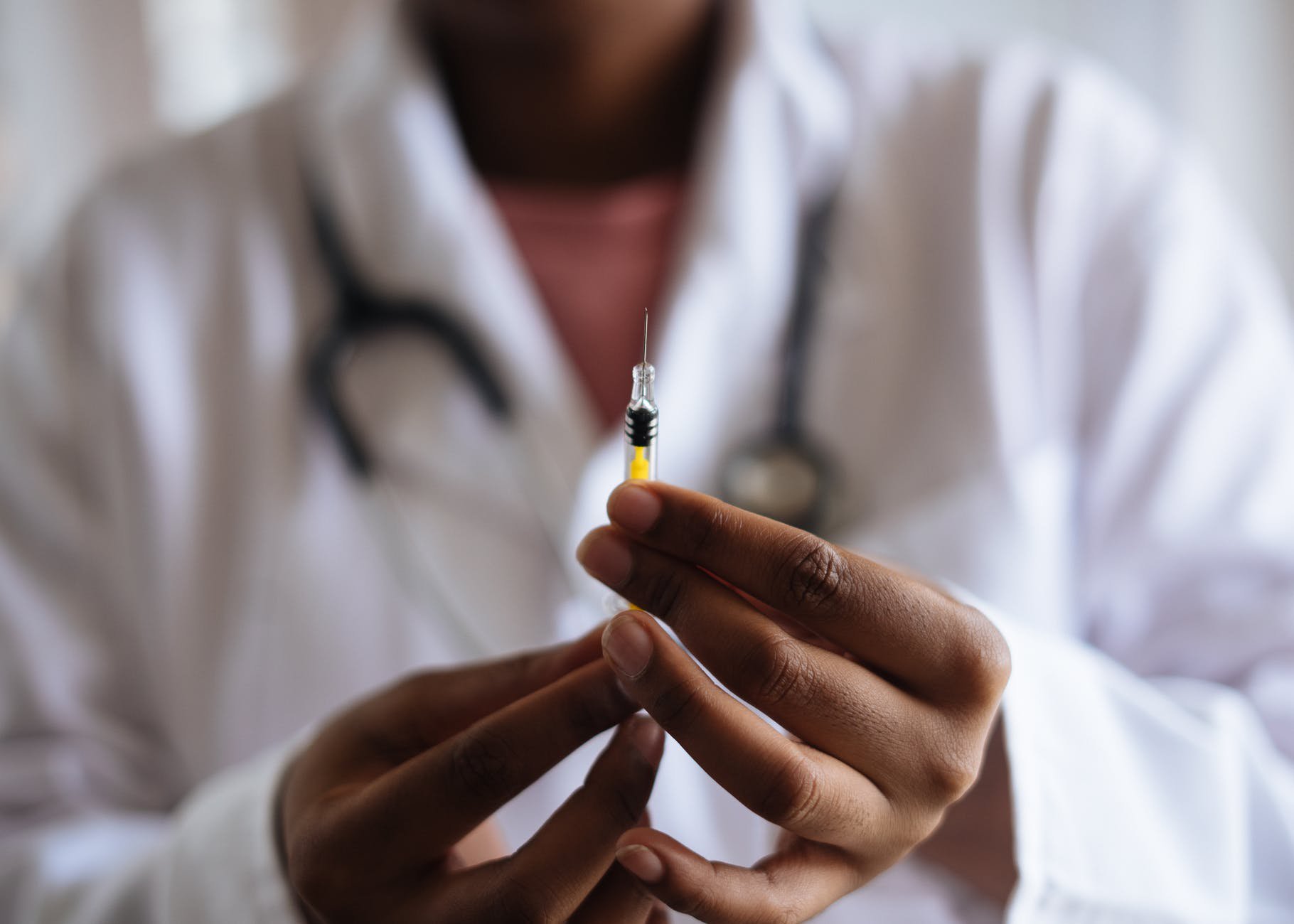
Are You Ready To Get Your LPN Career Started?
Now that you know all the details about the LPN job description, educational formation, day-to-day experience, and outlook, you can pursue your future career in healthcare.
The first step is finding the right program for your requirements, enrolling, and graduating. Next, you will attend the NCLEX-PN and, depending on your performance and the level of preparation offered by the program, either pass or resit it. Once you are licensed for practical nursing, you can pursue a job in your desired field and workplace.
If you wish to become an LPN in the easiest and most comfortable way, consider opting for Nightingale’s PN Diploma Program, a hybrid option that allows you to complete your theoretical education fully online and attend on-ground supervised field experience. The program prepares you for sitting and passing the NCLEX-PN and becoming a worthwhile licensed practical nurse, within as few as 12 months of education.
Enroll in Nightingale’s PN Diploma Program and reap the benefits of an LPN career.
FAQs for the LPN Job Description and Role
What Does LPN Stand For?
LPN is a shorthand of licensed practical nurse, an entry-level nursing role that performs basic care tasks in various healthcare settings (from hospitals, to nursing care facilities, or physicians’ offices), under the supervision of other higher nursing staff, including registered nurses, physicians, or doctors.
What Are the Skills of an LPN?
A licensed practical nurse must develop various skills in primary care during the PN Diploma Program (including basic medical concepts and experiential applications).
However, the ideal candidate for this profession should also demonstrate they have various soft skills, such as endurance, patience, attention to detail, and communication skills. The latter are especially important, since licensed practical nurses have to maintain a constant line of communication between patients, healthcare personnel, and other caretakers. All of these skills are included in the general LPN job description.
What Tasks Can a LPN Perform?
Licensed practical nurses are qualified to perform many basic tasks, such as accurately taking vital signs, recording a patient’s history, applying and changing bandages, assisting patients in daily activities, and communicating with clients and personnel.
Depending on the additional certification an LPN holds, they may also perform more advanced tasks, such as collecting samples, including drawing blood, administering medicine, performing IV therapy, or caring for geriatric or juvenile patients.
What Tasks Cannot Be Delegated to LPNs?
The tasks that a licensed practical nurse cannot perform can be divided into two categories: tasks requiring additional certification that LPNs can earn, or tasks that are simply delegated to better-qualified nurses (RNs, physicians, and doctors). Here are some frequently encountered tasks and whether LPNs can or cannot perform them (with or without certification):
- Can an LPN administer medicine? Yes, licensed practical nurses are authorized to administer various medications orally, topically, inhalation, or injection, within most healthcare settings. Still, they can only do so under the supervision of another registered nurse or physician. Saline and heparin flushes via direct IV push are an exception.
- Can LPNs draw blood? The answer depends on your state’s regulations, with some allowing LPNs to draw blood under appropriate supervision, while others requiring additional certification, or delegating the task to other personnel.
- Can an LPN insert a catheter? Depending on state and workplace regulations, LPNs may be allowed to insert a Foley catheter, but generally, catheter insertion is performed by RNs or doctors.
- Can LPNs perform IV therapy? Generally, LPNs can only start an IV with if they have completed an appropriate IV therapy training program.
- Can LPNs mix IV medications? No, LPNs cannot mix IV medications.
- Can an LPN give antibiotics? While they can administer most types of medicine, including antibiotics, the answer depends on the mode of administration. All such tasks are done under direct supervision.
- Can LPNs manage a ventilator? Yes, licensed practical nurses can manage a ventilator, as part of their designated tasks.
- Can an LPN administer oxygen? Oxygen administration is generally done by registered nurses, physicians, or other personnel. However, LPNs can earn their certification for oxygen administration, too.
- Can LPNs perform injections? Yes, LPNs can administer medications via intramuscular (IM) or intravenous (IV) injections, but only under the direct supervision of a registered nurse or physician. Performing an IV injection in home health settings is an exception, with LPNs not being allowed to perform them.
Where Do Most LPNs Work?
According to the data provided by the Bureau of Labor Statistics, most licensed practical nurses (35% or around 229,250) work in nursing homes.
Hospitals are next in line with 15% of licensed practical nurses being employed there. Another 13% of LPNs provide home health services, with 12% of them working in physicians’ offices.
Can You Earn an LPN Degree Online?
Yes, many online colleges provide certification programs for learners that cannot attend in-person or wish to complete their education with maximum comfort. However, you will still have to attend on-ground field preparation in accredited venues.
At Nightingale, the PN Diploma Program is a hybrid option that guarantees a flexible learning path, by combining fully online study with on-ground supervised field experience. By enrolling in this program, you get fully prepared for taking the NCLEX-PN exam and becoming a successful licensed practical nurse.
Start your nursing journey with our PN Diploma Program! Send in your application today!

